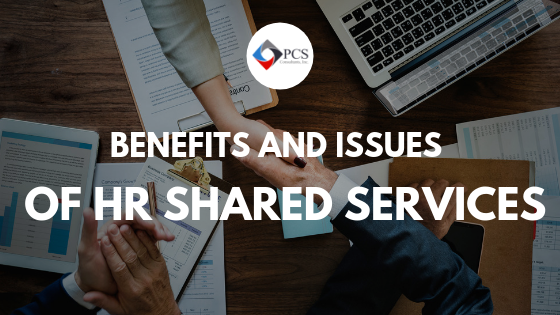Benefits and Issues of HR Shared Services
Companies have started to shift and considering the use of HR Shared Services. An HR Shared Services model involves the centralization of services among agencies to reduce employee redundancy, reduce cost, improve productivity and increase customer satisfaction.
For example, if most of the offices in the company need a typist, then shared services would mean having a department for these typists instead of each department having their typist.
Technology has been the facilitator of this change. Some shared service models were unimaginable a few years back, but technological innovations paved the way for these changes.
Some examples would be an organizational intranet that can disseminate information regarding HR policies and procedures, allowing PIN-based access to personal information and the scanning of electronic files, so it will be shared faster within the office.
Often, there has been confusion on what functions of HR must be using the shared services model. In order to make things easier, HR functions are divided into two.
Core vs. Non-Core HR Functions
Core Functions of the HR refer to those that are highly transactional. Since it is standardized, it can easily be duplicated. These are the functions that are more recommendable for shared services. Such HR Core functions include payroll, recruitment, benefits handling, internal relations, training of employees and compliance to safety and security.
Non-core Functions are those that are more tailor-fit to the organization’s needs, strategies and goals. These functions are better for an internal agency rather than with a shared services center. Some of these functions include employee development, counseling and the management of learning programs.
Despite its increasing trend, this new approach is still facing some challenges. Below, we will discuss the benefits and issues creating HR shared services.
Benefits of HR Shared Services
Cost, quality, and organizational efficiency are seen as some of the driving forces why companies are shifting to shared services.
Some of the benefits include:
- Reduced costs
- More career opportunities for HR Staff
- Improved quality of services
- Higher customer satisfaction
- A more holistic approach to problems
- Better information management
Issues on HR Shared Services
It is anticipated that there will be issues concerning this shift towards HR shared services. However, these issues are seen to be something that can be addressed to harness the potential of this strategy further
Some of the transition issues are as follows:
- Openness and support from the management
- The need to invest in large-scale technological infrastructure
- Choosing whether the operator should be in-house or outsourced
- Staff capability
- HR Manager’s ability to adapt to the change
- Communication challenges
- Accountability
Aside from some transition issues, there are also some long-term challenges that are foreseen. These include the following:
- Ensuring the role of HR as the strategic implementer in both words and deed.
- Balance of HR aligning itself with the business interests of the owner’s vis a vis fulfilling its distinctive function as a champion for employees.
- Deciding which is more critical: efficient use of resources or satisfying the customers’ needs.
- Preparing for the possibility that staff from the lower position cannot cope up with the capabilities that will make them quality for senior positions.
- Determining the allocation of resources especially in a project organization.
- Identifying the risks of focusing too much on selling the products rather than giving sufficient consideration to the content.
- Avoiding depersonalized services because of the complete loss of face to face contact.
Year after year, the HR shared services have been continually evolving due to the recent advancements of technologies. It might have its fair share of challenges, but it doesn’t outweigh the benefits.
As companies continue to shift to this kind of services, owners must be mindful of its overall effect on their businesses.






























Nice blog. Effective human resource management allows staff members to contribute efficiently and effectively to the general organizational direction.
Like HR Outsourcing Companies
The function of Human Resource Systems is always largely administrative and at all the organizations. With the variable degrees, the majority of the organizations formalized for the evaluation and the processes of pay.
Some problems have already been encountered, but the issues to be faced are more likely to be medium term in nature and more to do with getting the benefits out of shared services without creating other difficulties.
Thanks for this insightful post. I am very curious to find out and reading blogs on human resources. Its help me to choose Human resources solution from karmamgmt